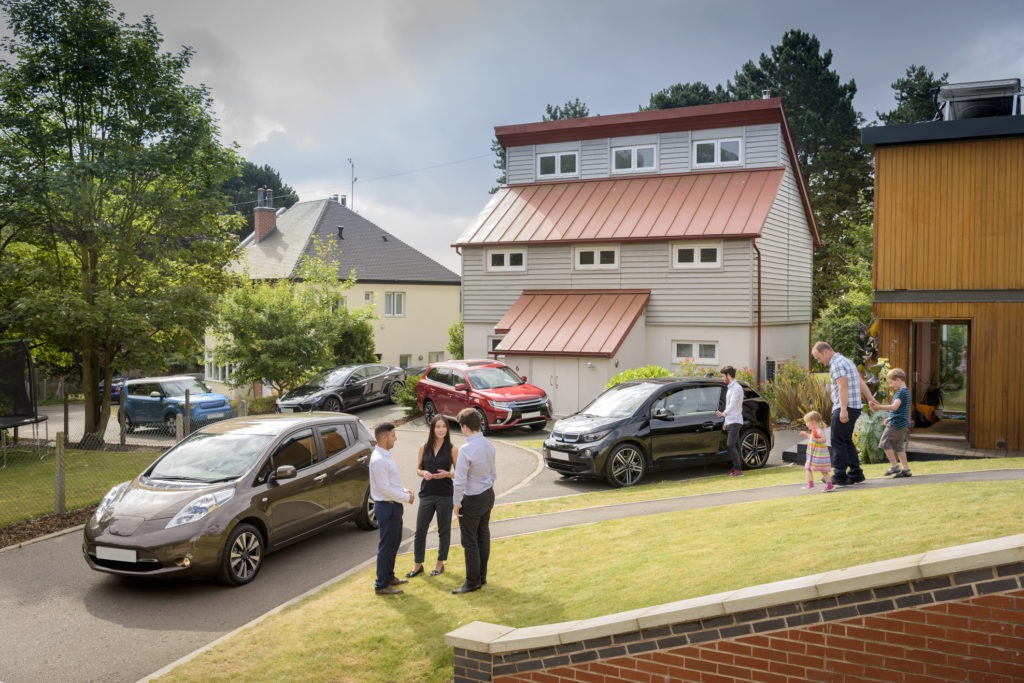Home EV charging will not be the future, says UK’s National Grid
21 August 2017

21 August 2017
The UK’s electricity operator National Grid has said that home charging will not be the dominant way to charge electric vehicles (EVs) in the future, as ′current EV times are not going to be acceptable,’ and grid limitations mean that charging 300-mile EVs is still going to take more than six hours. In addition, almost half of UK households lack the off-street parking needed to do home charging anyway – with the share growing as city populations swell. As a result, it says the EV revolution towards 2050 rests on commercial sites including petrol stations – an admission that will please Big Oil companies. The issue is likely to spread Europe-wide, with energy operators in the German states of Bavaria and Baden-WÃœrttemberg also expressing concerns about meeting EV charging demand.
Furthermore, the National Grid suggests that if consumers demand long-range EV charging times ′in minutes’ similar to refuelling times they are used to at petrol stations, then the ′home is not going to be the place to do it.’ It concludes therefore: ′It may well be that the charging from home option may not be in the long term interest of the consumers even with smart chargers.’
In the first in a series of ′Thought Pieces’ designed to provoke discussion, which follow a series of reports that the UK’s local electricity infrastructure cannot cope with mainstream use of EVs, the National Grid itself appears to agree. It highlights a My Electric Avenue report which found voltage issues with only five 8.5kW chargers connected to a network cluster (of 134 homes) charging at the same time. It also said that 50kW chargers and above would allow for more acceptable charging times – and that these are well outside what home charging can provide (which in practical terms max out at 11kW). In fact, it even talks about 150kW and 350kW commercial site chargers from a joint venture founded by BMW Group, Daimler, Ford Motor Company and Volkswagen Group announced last November, stating that ′bigger would be better for the consumer.’
In the report, the National Grid provides very useful statistics regarding standard size chargers and the relative EV battery charging times these will provide.
Current size chargers are 3.5kW, which provides power equivalent to that of a fast boiling electric kettle. Standard EVs over the next period (such as the Jaguar i-Pace and Tesla Model S) look set to provide 300-mile ranges, with 90kW capacity batteries. With this size charger, National Grid statistics show charging takes an impractically long 19 hours 20 minutes. This is charging from 25% charge remaining to 100% – since like petrol, people recharge when the battery is low, not empty.
These 3.5kW home chargers are now being replaced by 7kW chargers, which would take at best 9 hours 40 minutes to charge 300-mile EVs, according to National Grid’s figures. However, with smart chargers lowering maximum charging rates for the evening peak it is still possible that the EV might not be fully charged by the morning for the next commute.
The next step up, 11kW chargers, are the maximum that can practically be used in a household in the UK, which would lower 300-mile EV charging times to a more useful 6 hours 10 minutes – however, the National Grid warns that that since UK households are ′fitted with a main fuse of 60 to 80 amps,’ ′when using such a charger it would mean that you could not use other high demand electrical items (such as kettles, oven and immersion heaters) without tripping the house’s main fuse.’
As a result, the suggestion from the National Grid’s figures is that home charging is not mainstream-practical in the UK moving towards 2050, and that commercial sites will be the principal charging method. It points out that government statistics suggest 43% of UK households cannot charge EVs at home anyway as they lack off-street parking, with rising city populations meaning this figure is expected to rise over the coming decades as EVs become mainstream.
Commercial sites can currently come with 50kW charging, which will charge a 300-mile EV in 1 hour 20 minutes. The joint venture from leading OEMs aims to provide 150kW commercial chargers, with the potential to upgrade these to 350kW. If consumers demand charging in minutes, this latter will be required. A 350kW charger would be able to charge an average 22kW-battery EV of today in 4 minutes (assuming EV battery improvements to accommodate this), and 12 minutes for a longer range EV – the length of time for a shop browse or coffee. The National Grid says that it expects supermarket petrol stations and car parks to provide an increasingly important role in providing these fast-charging solutions.
Meanwhile in Germany, the energy industry is warning that Germany’s electricity grid is not prepared for EV charging either, particularly in the states of Bavaria and Baden-WÃœrttemberg. Electricity production in these regions is declining due to the Energiewende and closure of nuclear plants following consumer pressure in the aftermath of the 2011 Fukushima disaster, but demand is not expected to fall. As a result, current plans expect Southern Germany to need to import between a quarter and half of the electricity requirements from other federal states or abroad in the coming decades as the EV revolution gathers pace.